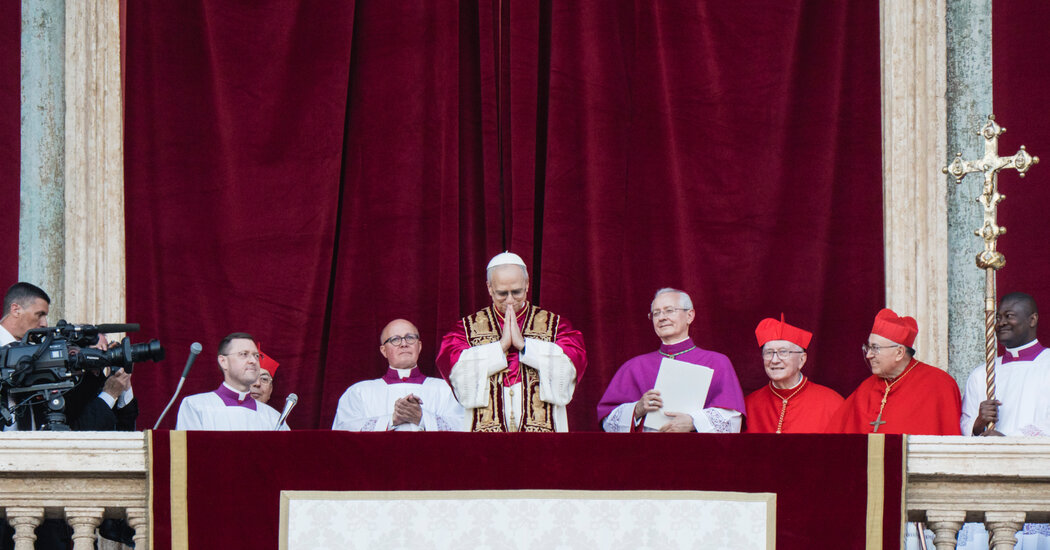In his first formal address to Roman Catholic cardinals, Pope Leo XIV on Saturday said he would continue the work of Pope Francis in steering the church in a more missionary direction, with greater cooperation among church leaders and a closeness to the marginalized.
Leo said he was committed to following a path of modernization and cited a major document that Francis issued in 2013. From that document, Leo highlighted multiple objectives, including “growth in collegiality,” “popular piety,” a “loving care for the least and the rejected,” and “courageous and trusting dialogue with the contemporary world.”
“Francis masterfully and concretely set it forth,” Leo said, referring to the document, called “Evangelii Gaudium.”
The new pope also explained the choice of his name. The previous pope with his name, Leo XIII, issued a document called the “Rerum Novarum,” known in English as “Rights and Duties of Capital and Labor,” in the late 19th century in which he emphasized the church’s right to make assertions about social issues as they related to moral questions.
The document “addressed the social question in the context of the first great industrial revolution,” Leo explained.
Now, the pope added, another industrial revolution was taking place in the field of artificial intelligence. That, he said, would “pose new challenges for the defense of human dignity, justice and labor.”
The church, he said, “offers to everyone the treasury of her social teaching in response.”
The reference to Francis’ document was not the only endorsement that the new pope gave of his predecessor. Francis, Leo noted, was a “humble servant of God and of his brothers and sisters” who gave an “example of complete dedication to service and to sober simplicity of life.”
After the pope’s address, some of the cardinals also made speeches. Dominik Duka, a cardinal from Prague, said the subject of some of the speeches was the theme of “synodality” — referring to the process of dialogue between church leaders and lay people that was one of Pope Francis’ signature legacies.
Cardinal Duka said there had also been mention of the Vatican’s relationship with China. During his papacy, Francis made a deal with Beijing in the hopes of bolstering the church’s presence there.
The cardinals appeared to have noted the message about maintaining the direction set by Francis’ papacy.
As he exited the meeting, Cardinal Baltazar Enrique Porras Cardozo of Venezuela said the pope “spoke about the continuity of the pontificate of Francis and then he asked some questions to us.” Those questions were “mostly about the formation of priests and bishops,” the cardinal added.
On his way out of the meeting, Cardinal Sean Brady of Ireland said Leo was in the process of “greeting everybody now, which is very nice.”
On Saturday, after the meeting, Leo made an unannounced visit to Our Lady of Good Counsel in Genazzano, an Augustinian sanctuary outside Rome. A cheering crowd greeted him as he exited the passenger’s seat of a black minivan. Residents of the town leaned out of windows to take a picture of the pope as Leo shook hands and waved to those gathered.
Jason Horowitz and Elizabeth Dias contributed reporting from Vatican City.











